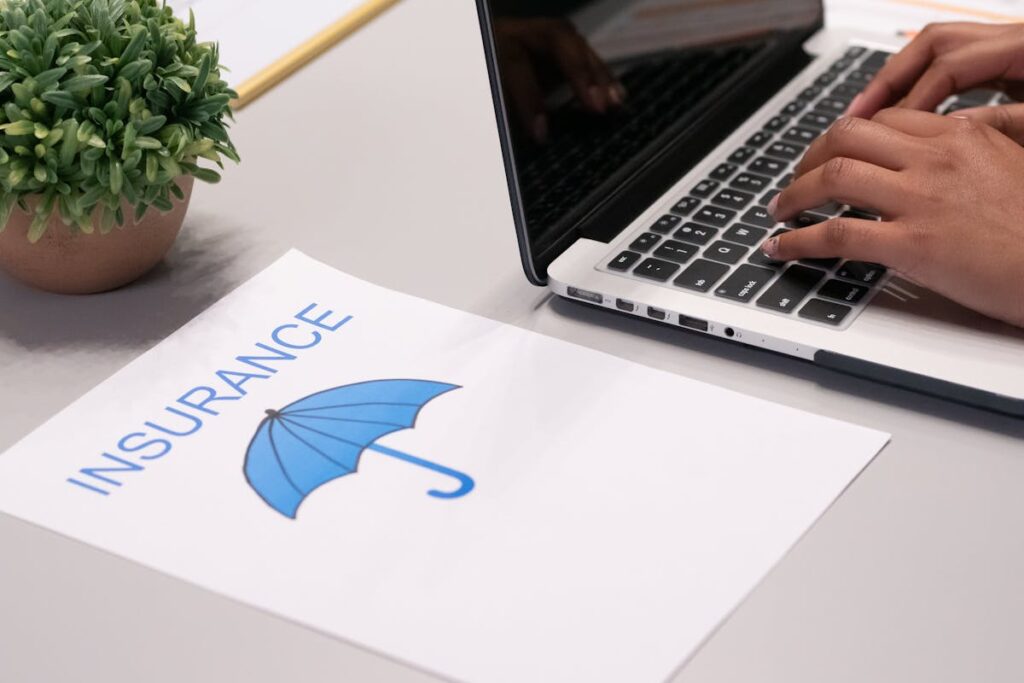Dealing With a Traumatic Brain Injury After a Car Accident in California
Dealing with a traumatic brain injury (TBI) after a car accident in California presents a complex confluence of immediate medical concerns, long-term rehabilitation, psychological impact, and legal implications. Given the life-altering potential of such an injury, the need for comprehensive and timely medical intervention, coupled with an understanding of the legal rights for accident victims, is paramount. The crucial role of strong social support networks, too, cannot be understated. Therefore, a detailed exploration of these aspects is warranted to aid those affected and their caregivers in navigating this intricate landscape.
Understanding Traumatic Brain Injury
Traumatic Brain Injury (TBI), an often devastating condition, typically results from a violent blow or jolt to the head, disrupting normal brain function. The gravity of the injury is contingent upon the force of impact and the nature of the incident.
The cognitive effects of TBI can range from mild to severe, with a wide array of symptoms. The most common effects include difficulties with memory, attention, and problem-solving. More severe injuries can lead to profound cognitive deficits, including an inability to speak or understand language, significant confusion, or even coma.
Recovery milestones vary for each TBI patient, depending on the severity of the injury, the individual’s overall health, and the effectiveness of the treatment plan. Early milestones may include regaining consciousness, followed by improvements in verbal and physical responsiveness. Rehabilitation typically involves targeted therapies to address specific cognitive deficits. Long-term recovery may involve regaining independence in daily living skills, returning to work or school, and reintegration into the community. Understanding these recovery milestones is essential for setting realistic goals and managing expectations during the often lengthy recovery process.
Immediate Medical Attention Importance
In the wake of a suspected Traumatic Brain Injury (TBI), the importance of immediate medical attention cannot be overstated. Recognizing the symptoms promptly and activating an efficient emergency response system is crucial in mitigating the debilitating effects of a TBI.
Symptom recognition plays a pivotal role in the critical moments following an accident. The signs of a TBI might include confusion, disorientation, headache, dizziness, blurred vision, or unconsciousness. While some symptoms appear immediately, others may be subtle and only manifest hours or even days later. Therefore, it’s essential to seek medical assistance urgently, even in the absence of visible injuries.
A swift emergency response is equally important. The first responders at the scene are trained in early trauma management and can initiate life-saving interventions. They can prevent further injury, stabilize the patient, and expedite transport to an appropriate healthcare facility.
In the context of a TBI, the golden hour – the first hour after an accident – often determines the patient’s prognosis. Thus, immediate medical attention is critical. It can significantly influence the extent of recovery and the overall quality of life for TBI survivors.
Long-Term Rehabilitation Strategies
Proper management of a Traumatic Brain Injury (TBI) does not end with immediate medical care; it also involves a comprehensive long-term rehabilitation strategy. This strategy is instrumental in helping patients regain their functional abilities, improve quality of life, and integrate back into society.
One of the vital components of this strategy is cognitive rehabilitation. This structured set of therapeutic activities is designed to improve cognitive functions such as attention, memory, and problem-solving. By retraining the brain, cognitive rehabilitation can help individuals with TBI navigate the complexities of day-to-day life more effectively.
Adaptive technologies also play a critical role in long-term rehabilitation strategies. These technologies may include assistive devices, software, or equipment that help individuals with TBI perform activities that they may find challenging due to their injury. For instance, a speech recognition software can aid in communication, while a wheelchair or a walker can assist with mobility.
Psychological Impact and Coping
The psychological aftermath of traumatic brain injuries can manifest as emotional distress and necessitate mental health intervention. Therapeutic approaches are vital to addressing these impacts, fostering resilience, and promoting recovery. Additionally, the role of social support networks in alleviating emotional trauma and facilitating healing should not be underestimated.
Emotional Trauma Post-Injury
One often overlooked aspect of traumatic brain injury recovery is the emotional trauma that survivors must grapple with post-injury. This is a complex stage, often punctuated with emotional triggers and varying trauma responses. The affected individuals might experience a whirlwind of emotions, ranging from sadness to anxiety, anger, and even depression.
Understanding these triggers and responses is crucial to mental health and overall recovery. Coping mechanisms become an essential part of this process, equipping survivors with the tools they need to navigate the tumultuous landscape of emotional healing. Self-care strategies, for instance, can provide stress relief, fostering resilience building and contributing to a strengthened emotional foundation.
Further, anxiety management plays a pivotal role in the recovery journey. Prolonged stress and anxiety can exacerbate trauma responses, making it increasingly difficult for the survivor to regain emotional stability.
Lastly, support networks are instrumental. The encouragement and understanding from loved ones can be invaluable in promoting emotional healing. They can help survivors feel understood and less alone, providing the necessary environment for resilience building and recovery. The road to recovery is certainly challenging, but with the right tools and support, survivors can navigate their way to healing.
Therapy for Mental Healing
Addressing the psychological impact of a traumatic brain injury necessitates more than just self-care strategies and a strong support network; therapy plays a significant role in the healing process. Cognitive therapy, in particular, is a widely recognized intervention for individuals grappling with the aftermath of such injuries. It offers a structured approach to identify and challenge unhelpful thinking patterns, thereby facilitating healthier cognitive processes and emotional responses.
Mindfulness practices, in conjunction with cognitive therapy, can provide an additional layer of support. These practices, which include meditation and focused breathing, can help individuals develop a greater awareness of their present experiences, thoughts, and emotions. This increased awareness can foster acceptance and promote mental healing.
Both cognitive therapy and mindfulness practices can be tailored to meet the unique needs and circumstances of the individual, highlighting their versatility and applicability. However, it’s important to note that these therapies may need to be supplemented with pharmacological treatments, particularly in cases where symptoms of depression, anxiety, or other psychiatric conditions coexist. Therefore, a multidisciplinary approach is often the most beneficial in promoting optimal mental healing after a traumatic brain injury.
Social Support Importance
In the journey towards recovery from a traumatic brain injury, the importance of social support cannot be overstated. Social networks, including family involvement, peer support, and community resources, play a vital role in creating emotional connections that are essential for psychological healing. Support groups and recovery networks foster a sense of belonging, provide a platform for shared experiences, and offer practical advice on navigating the complexities of living with a traumatic brain injury.
Caregiver assistance is also a vital component of this support system. Caregivers not only provide practical help with daily activities but also offer emotional support that strengthens resilience and promotes recovery. They serve as anchors, providing stability and comfort during turbulent times.
Moreover, community resources can provide a range of services, from rehabilitation programs to counseling services, all geared towards helping individuals cope with their new reality. They can also offer education and training programs to caregivers, enhancing their capacity to provide effective support.
Therefore, harnessing these forms of social support is vital in mitigating the psychological impact of a traumatic brain injury, facilitating coping strategies, and fostering an environment conducive to recovery.

Navigating Insurance Claims
Navigating insurance claims post-traumatic brain injury necessitates a comprehensive understanding of one’s coverage, meticulous documentation of accident details, and skillful negotiation with insurers. Such a process, often complex and bureaucratic, demands an acute attention to detail and a firm grasp of one’s policy’s stipulations. Subsequently, we will explore strategies to facilitate these tasks, aiming to equip you with the knowledge required to successfully manage your insurance claim.
Understanding Your Coverage
While coping with a traumatic brain injury, understanding the intricacies of your insurance coverage can be a complex yet crucial task. Not all insurance policies are created equal, and there are often significant differences in coverage options and policy limitations.
First, it is essential to understand the specifics of your policy’s coverage options. Policies may cover various aspects such as medical expenses, loss of income, and rehabilitation costs. Each coverage option may have specific criteria and stipulations that determine what is covered and to what extent. Understanding these elements can help you manage expectations and prepare for potential out-of-pocket costs.
Furthermore, it’s of utmost importance to be aware of your policy limitations. These can include both financial limits on coverage and restrictions regarding treatment types or providers. Some insurance carriers may only cover a certain amount of medical expenses or have a maximum payout limit. Others may only cover treatments deemed “medically necessary,” creating potential limitations on rehabilitation or alternative therapies.
Documenting Accident Details
Keeping meticulous records of the accident that led to a traumatic brain injury is a paramount task in navigating insurance claims; it is a process that demands both precision and diligence.
Firstly, it is crucial to gather witness statements and accident photographs, which provide a detailed account of the incident and a visual representation of the accident scene, respectively. These are essential elements in establishing a credible narrative of the event.
Simultaneously, police reports should be obtained, serving as an official, unbiased record of the accident. As part of injury documentation, medical records need to be duly collected, providing a comprehensive account of the injury, its treatment, and prognosis. Additionally, it’s important to understand what evidence might help your car accident case, such as photos, medical records, and surveillance footage.
The creation of a timeline is a vital step in documenting accident details. This chronological record of events aids in providing a clear and concise narrative of the accident, from the moment it occurred to the present time.
Insurance notifications must be timely made, and claim forms meticulously filled out, so as not to miss any potential benefits. An accident sketch provides another angle of detailing the incident, while liability evidence further strengthens the claim, potentially impacting the compensation received. This methodical approach ensures a well-documented and robust insurance claim.
Negotiating With Insurers
Once the details of the accident have been meticulously documented, the next step involves negotiating with insurance companies. This process, often characterized by insurer tactics and claim negotiation, can be complex, stressful, and difficult to navigate without a strong understanding of the intricacies involved.
One must be prepared for various insurer tactics. Insurance companies may attempt to minimize the payout by disputing the severity of the injury, suggesting contributory negligence, or questioning the necessity of certain medical treatments. These strategies are designed to protect their financial interests, often to the detriment of the injured party.
Claim negotiation requires a comprehensive understanding of the victim’s rights and the insurer’s obligations. It involves presenting a detailed and substantiated claim, backed by medical reports, accident reconstruction findings, and witness statements. It is crucial to remember that insurers are likely to offer an initial settlement that is lower than what is fair or necessary. Therefore, strong negotiation skills are essential.
Seeking the assistance of a legal professional experienced in brain injury claims can significantly improve the chances of a favourable settlement. They can navigate the complexities of insurer tactics and claim negotiation, ensuring that the victim’s needs are met adequately and promptly.
Legal Rights for Accident Victims
In the aftermath of a traumatic brain injury, understanding your legal rights as an accident victim becomes crucial. Under California’s negligence laws, victims of such personal injury incidents have the right to seek compensation for damages incurred. Available compensation options could include medical bills, pain and suffering, lost wages, and even future care needs.
The liability determination is a vital part of the process. It involves identifying the party responsible for the accident. This process can be complex depending on the circumstances of the accident, hence the need for legal representation. A qualified attorney can guide you through the settlement process, ensuring your rights are upheld.
Legal representation is essential for case evaluations and court proceedings. A lawyer with experience in traumatic brain injury cases can help establish the extent of your injury, determine the appropriate compensation, and represent your interests in court if necessary. Obtaining legal advice early is pivotal to securing the best outcome possible. If you’re unsure about how to proceed legally, discover how a lawyer can lighten your load and fight for your rights. Remember, your legal rights are there to protect and support you after an accident. Understanding these rights and how to exercise them is paramount to your recovery process.
California Support Resources Available
Navigating through the aftermath of a traumatic brain injury can be an arduous process. However, the state of California offers a plethora of support resources to facilitate the recovery journey. These resources range from support groups to financial assistance programs, all aimed at helping victims and their families find a semblance of normalcy.
Support groups are an integral part of the recovery process, providing victims with a platform to share experiences and learn coping strategies. These are often facilitated by advocacy organizations which also offer peer counseling services. These organizations are a valuable community resource, providing emotional support and companionship.
Financial assistance is another critical aspect of support. Numerous programs exist to help alleviate the financial burden that comes with treatment and rehabilitation. These, coupled with legal aid services, ensure that victims have access to justice and compensation.
Educational programs are also in place to help patients relearn basic skills and regain their independence. They typically work in conjunction with rehabilitation centers which offer comprehensive care, including physical, occupational and speech therapy.
Frequently Asked Questions
What Are the Common Symptoms of Post-Concussion Syndrome?
Post-concussion syndrome commonly presents with headaches, dizziness, fatigue, and cognitive difficulties such as memory issues and difficulty concentrating. Effective symptom management and recovery strategies are crucial for mitigating these symptoms and promoting recovery.
Can Traumatic Brain Injuries Cause Personality Changes?
Yes, traumatic brain injuries can cause personality changes. Studies indicate that individuals may experience personality shifts and have difficulties with emotional regulation, which can significantly impact their interpersonal relationships and overall quality of life.
How Does a Traumatic Brain Injury Affect Ones Ability to Work?
A traumatic brain injury can significantly impact work performance due to cognitive challenges such as memory loss, difficulty concentrating, and decision-making problems. Workplace accommodations may be necessary to support ongoing productive employment.
Are There Specific Driving Rules in California for Those With a Traumatic Brain Injury?
In California, driving restrictions for individuals with a traumatic brain injury are not explicitly defined. However, participation in rehabilitation programs may be required to ensure safe and responsible operation of a vehicle.
What Kinds of Financial Assistance Are Available for Victims of Traumatic Brain Injury?
Financial assistance for traumatic brain injury victims may include government assistance programs, insurance claims, and potential legal settlements. These resources can provide support for medical expenses, rehabilitation, and other costs associated with ongoing care and recovery.



